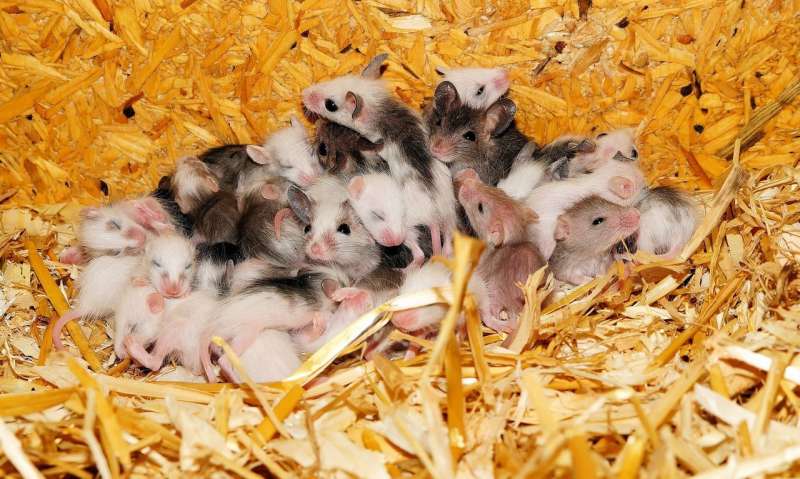Childhood stress of mice affects their offspring behavior

Russian neuroscientists report that the stress experienced by mice during their first weeks of life affects not only them, but also their offspring. The data will help to understand how negative experience in early life affects the mammalian brain. The results are published in Genes, Brain and Behavior.
Offspring separation from the mother is a common early stress model for experimental animals. It is known that mice and rats separated from their mothers during the first weeks of life demonstrate more disturbed behavior and have reduced learning abilities compared to their relatives. Although the behavioral consequences of such a negative experience are well studied, it is still not known what molecular and structural changes in the brain are associated with them.
Neurobiologists from Russia have suggested that memory and learning deterioration due to early stress is associated with impaired development of the hippocampus. This part of the brain is involved in memory formation, and plays an important role in responding to stress and in regulating the level of anxiety. In one of the hippocampus structures, the dentate gyrus, the formation of new neurons continues even in adult animals. Therefore, hippocampus disorders may lead to many behavioral and cognitive pathologies.
To test their hypothesis, the scientists conducted several successive experiments on female mice. At the first stage, the researchers raised three groups of mice. The mice from the first group in the first two weeks of life were daily separated from their mother for three hours, from the second group for fifteen minutes. The third group was the control animals not subjected to any stress. Then all three groups passed learning and memory tests. Several animals from each group were used to study brain tissue while others were used in the third experiment. Once each of them acquired offspring, the scientists checked their behavior.
Behavioral tests showed equal ability to learn in mice from experimental and control groups. Although spatial memory of animals from the first group, which in the first days of life were separated for a long time from their mother, was worse. In addition, these mice showed a less pronounced exploratory behavior when colliding with a new object and had 12 percent fewer neurons in the hippocampus. Moreover, the scientists found a noticeable difference in the level of maternal care between the groups of animals, which affected their offspring.
"The results of the study confirm that separation from the mother during the first two weeks of life adversely affects the development of mice. They reveal a deterioration in memory and learning, and later maternal behavior is affected," says Natalia Bondar, one of the authors of the work, a senior researcher at the laboratory of the regulation of gene expression at the Institute of Cytology and Genetics, SB RAS. "The most interesting result is the behavioral changes in the second generation of mice related to their sex. It is unclear what mechanisms change mice offspring behavior. It is important to explore the changes associated with early stress at both the behavioral and molecular levels, as this will allow us to find ways to reduce its negative effect. "
More information: Vasiliy V. Reshetnikov et al, Stress early in life leads to cognitive impairments, reduced numbers of CA3 neurons and altered maternal behavior in adult female mice, Genes, Brain and Behavior (2018). DOI: 10.1111/gbb.12541
Journal information: Genes, Brain and Behavior
Provided by AKSON Russian Science Communication Association

















